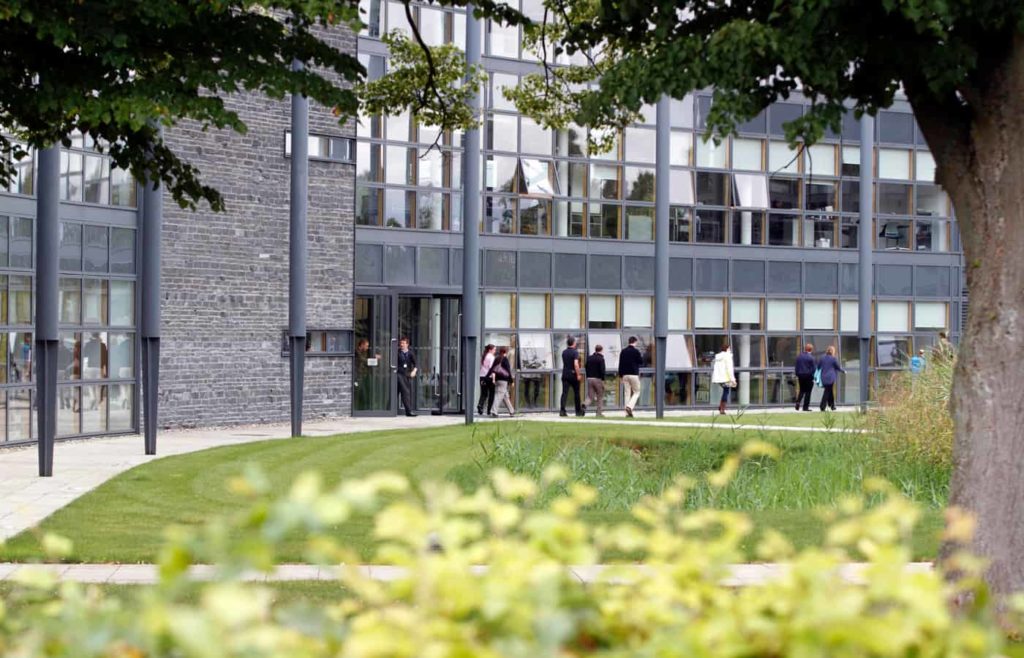Guildford: Charles Russell Speechlys reports firms slow to embrace smart building revolution

A report produced by law firm Charles Russell Speechlys finds that though three in four property professionals expect the new smart-building technology to yield financial gain, beyond simply energy efficiency, fewer than a quarter of landlords and developers have made any progress in adopting this technology. Three in five report they are experiencing challenges in delivering a return on investment from their smart real-estate assets, to the extent that most property professionals think it will take up to 10 years to realise the potential of smart buildings.
The report by Guildford-based Charles Russell Speechlys and Longitude is entitled The New Real, and it is based on quantitative and qualitative interviews with more than 270 senior developers, landlords, occupiers, advisers and investors.
Through the research, the firm has identified four major obstacles to progress. First, there is the problem of valuing the benefits of smart buildings. Though two in three of the respondents (65%) say the ability of smart buildings to capture valuable data will increasingly be factored in to valuation models, three quarters (74%) think it will be up to a decade before challenges in capturing and accessing the data that would justify smart developments can be resolved. One such problem is that nearly three in four (73%) believe it is difficult to quantify the gains smart buildings provide in less tangible ways such as improved health and wellbeing in those using them.
Secondly, there are the problems inherent in developing new partnerships and collaboration. To get to grips with the prospective ‘smart’ benefits on offer, some 56% see a need for new collaborations, particularly new partnerships with technology providers. But 85% are concerned about the legal risks of such partnerships; and half think multinational tech giants, such as Google, will have a disruptive impact on commercial real estate in the next 10 years by taking business away from traditional property businesses.
Thirdly. there is the problem of managing the building obsolescence likely to be caused by the spread of smart buildings. A staggering 80% of the industry is worried about building obsolescence as a result of the smart building revolution, and this figure rises to 91% among landlords.
Nearly two thirds think pre-21st-century office and retail buildings will struggle to retain value, and this figure rises to 72% among developers. A third of funders and 37% of developers are seeking to future-proof their investment portfolio to mitigate building obsolescence and as many as 40% are actively considering how best to respond to the risk.
Finally, problems are foreseen in managing data privacy and cyber security which is identified as a significant risk. On the one hand, 40% of those interviewed feel that the opening of new kinds of revenue streams will be one of the most significant gains from smart buildings over the next ten years, and three quarters (72%) expect to achieve financial gain from using data collected by the built environment.
On the other hand, nine in 10 (87%) of occupiers and building owners are concerned that the increased use of smart systems in buildings may increase the risk of businesses being hacked through the building. More than half (55%) of those interviewed say data protection issues arising from increased use of smart systems will be a significant risk for their businesses over the next five years. This concern is highest among landlords at 69%. Moreover, half of property professionals (49%) think there is no clear understanding on the ownership of data among the different organisations involved in capture, processing and analysis.
Commenting on the research findings, James Carter, managing partner of Charles Russell Speechlys, said: “Whether you are an owner or occupier, a builder or developer, or a technology provider, the built environment offers real opportunities for the forward thinking. In this report, we have explored the gains on offer and how they are likely to be exploited in coming years. Through a combination of deep-sector expertise and clear legal insight, the report analyses the gains and opportunities and shows where some of the key legal pressure points lie.”














